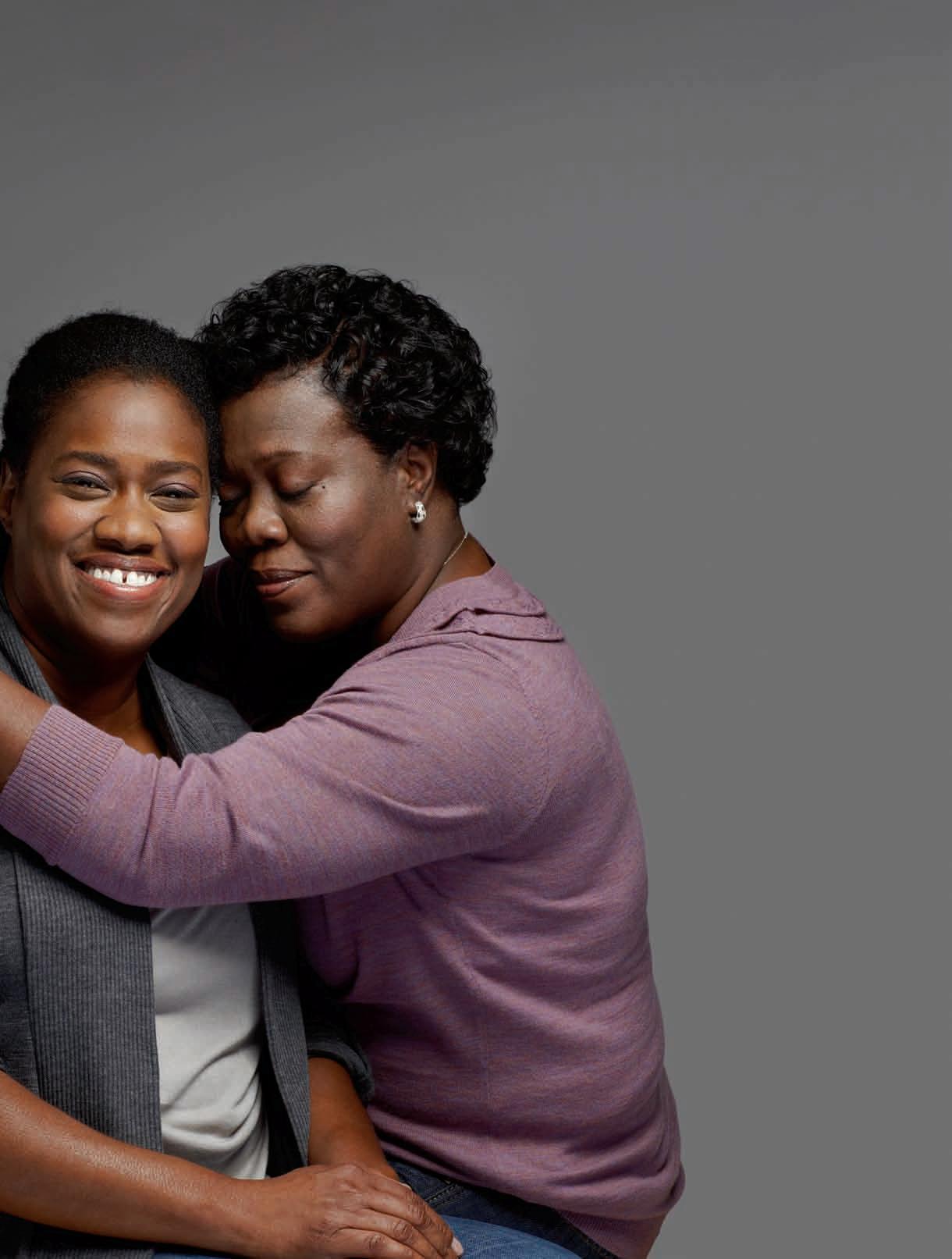
5 minute read
thoughts
Don’t Worry, Be Happy
This may seem simplistic, but mental wellness experts agree it is sound advice.
Advertisement
You may think happiness is achieved when you get something you want. But guess what, it’s not. Happy feelings come as you make your way on the journey, not when you arrive at the destination, according to leading researchers on positive psychology.
Also known as the “science of happiness,” positive psychology is the scientific study of the strengths and standards that enable individuals and communities to thrive. It became the rage several years ago when social scientists began focusing on how people stay mentally well.
The researchers confirmed common observations: Happy people tend to be healthier and live longer than unhappy ones.
But what makes people happy? The answer is different for everyone. Still, researchers found a universal truth: When people expect a specific goal—such as wealth, a great career or marriage—to bring them bliss, once they pursue and attain that goal they often end up feeling unhappy.
What do scientists suggest to increase well-being, reduce misery and flourish overall? Don’t wait for some thing or some one to make you happy. Instead, just live your life.
Also, happy isn’t measured by the “stuff” you’ve accumulated. The keys to nirvana are to interact with people and build good relationships, stay positive, find meaning in life and enjoy accomplishing small, everyday goals.
And accept that this feeling comes and goes each day. You’ll be so much happier. —Kate Ferguson
In Your Own Hands
While she searched for the magic key to unlock the door to joyfulness, Robin H-C, author of Thinking Your Way to Happy!, learned the only person who stopped her from feeling good was herself.
A few years ago, everyone and everything was in the way of me finding happiness. Nothing in my life—people, events, my recently ended marriage—aligned with the way I thought life would look at my age. Then I started doing research on how to get happy. But I came up empty.
I finally realized I was seeking happiness from other people. In the process, I made my self a victim. So I started creating experiences that generated joy. I did simple things, such as exercising and changing my diet. I also surrounded myself with inspiring people. I challenged myself to take small risks, such as writing a book without knowing if it would be published. Why? Because it made me happy.
This process showed me that happiness is a learned behavior. When I created joyful experiences for myself, I was empowered. Surprise! I found happiness was up to me all along. —As told to Cristina González
THE EXPERT SAYS
Everybody wants to be happy, says Manhattan-based psychotherapist Mary Pender Greene, LCSW-R, but people must learn what happiness really means.
What are some of the major misconceptions people have about happiness? Many people think making money will make them happy. But getting happy is an inside job. It comes from working on yourself so that you feel good [about undertaking that day-to-day process] rather than acquiring things. How can people get more realistic about happiness? Realize that you can feel happier and less happy at certain points. Agonizing about not being happy all the time makes people lose the opportunity to enjoy what they do have. Can seeking happiness become problematic? When being happy becomes a destination, it’s problematic. Happiness is a journey—and even when you arrive, you don’t stay there. People should start by doing things that lead them toward the happiness they seek. Then enjoy your travels along the route. Never wait until you reach your destination to be happy. —KF
Get ready to strut your stuff!
SPEAK YOUR MIND! (And Win Free Stuff)
Social circumstances, such as racism, poverty and unemployment, can increase a person’s chances of developing a mental illness. According to the National Alliance on Mental Illness, African Americans are more likely to be affected by these situations. Yet mental illness is often stigmatized and misunderstood in the black community. Tell us your thoughts on the issue by fi lling in the survey below. To say thank you, we’ll select fi ve winners at random whose surveys we receive and send a fun, dance fi tness DVD (suggested retail $14.98) like the one pictured left.
To enter our drawing, take the survey at realhealthmag.com/survey or fi ll out this form and mail it to Real Health, c/o Smart + Strong, 462 Seventh Avenue, 19th Floor, New York, NY 10018, or fax it to 212.675.8505. For offi cial contest rules, visit realhealthmag.com/survey/rules.
1. Name:_______________________________________________________ 2. Organization (if you represent one):______________________ 3. Street address:_____________________________________________ 4. City & state:_________________________________________________ 5. Zip code:____________________________________________________ 6. Email:_______________________________________________________ 7. Phone:_____________________________________________________
8. What year were you born?_________
9. What is your gender?
❑ Female ❑ Transgender ❑ Male ❑ Other
10. What is your annual household income?
❑ Under $15,000 ❑ $15,000–$34,999 ❑ $35,000–$49,999 ❑ $50,000–$74,999 ❑ $75,000–$99,999 ❑ $100,000 and over
11. What is the highest level of education attained?
❑ Some high school ❑ High school graduate ❑ Some college ❑ Bachelor’s degree or higher
12. What is your ethnicity?
❑ American Indian or Alaska Native ❑ Arab or Middle Eastern ❑ Asian ❑ Black or African American ❑ Hispanic or Latino ❑ Native Hawaiian or other Pacific Islander ❑ White ❑ Other
13. Where do you get Real Health?
❑ I’m a subscriber ❑ My doctor’s office ❑ My church ❑ A community or college organization ❑ It was mailed to me ❑ Other:_______________________ 14. Do you have Internet access?
❑ Yes ❑ No
15. Do you believe stress negatively affects your mental health?
❑ Yes ❑ No ❑ Not sure
16. When you feel overwhelmed by stress do you talk to others?
❑ Yes ❑ No
17. What often causes you stress? (Choose all that apply.)
❑ Work
❑ Money ❑ Health issues ❑ Other:_____________________ ❑ Relationship with spouse or significant other ❑ Relationship with family ❑ Caring for elderly parents ❑ Caring for children
18. Do you think you have a good, general understanding of mental health issues?
❑ Yes ❑ No ❑ Not sure
19. Are you comfortable interacting with people receiving treatment for mental illnesses?
❑ Yes ❑ No ❑ Not sure
20. Do you think having close relationships helps protect people from developing mental health issues?
❑ Yes ❑ No ❑ Not sure
21. Which of the following describes your view about people who have mental illness? (Choose all that apply.)
❑ They’re weak-minded ❑ They’re scary ❑ They’re crazy ❑ They can’t function ❑ They should be institutionalized ❑ They should get therapy and care
















